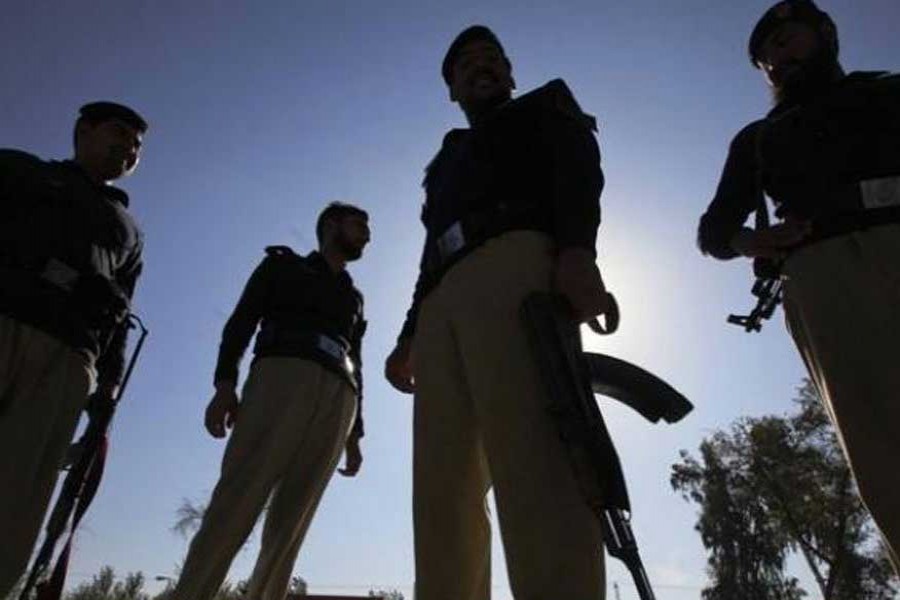
Published :
Updated :

Pakistan was carved by the British out of the womb of a kicking and screaming Subcontinent. The surgeon fled the scene before the umbilical cord could be cut. Brother turned against brother. The Punjab became awash in blood as millions were uprooted and thousands raped and killed in both sides of the border. It was as if a living, breathing organism was rent asunder, a calamity engineered by men.
It is strange therefore that post-partition India kept its bond with England intact, even sending such luminaries as V K Krishna Menon as its emissary. Although it should have been aggrieved with England, India vented its frustration toward its sibling, Pakistan. Most people recall the military confrontations; only Mahatma Gandhi's assassination made India relent and hand over the rightful claim of Pakistan to its share of central government assets. I am not letting Pakistan off the hook by any chance.
Nations cannot be cobbled together in a hurry. Countries grow and evolve. You may expedite independence but induced labour pain and caesarian section are to be avoided. After the carnage, a wobbly and truncated Pakistan was small consolation for millions of Muslims who suddenly found themselves on the wrong side of the border. A biggish minority suddenly lost its voice.
The princely states of Kashmir in the north and Hyderabad in the south were caught up in inauspicious circumstances. Sibling rivalry is the biggest stumbling block toward a possible solution to the vexed Kashmir issue. A phased rapprochement can chip away at long-standing bitterness and usher peace in the sub-continent. This will be a big win for South Asian Association for Cooperation (Saarc), a region pregnant with possibilities. A logical starting-point is confidence-building measures. But first, India has to stop hiding behind such boiler plate expressions as sovereignty and integrity. Official pronouncements from its External Affairs Ministry on J&K (Jammu & Kashmir) are as old as the hills.
The cultural affinity, woven over centuries of co-existence, existing between the arch enemies is so strong as to make Pakistan and India two peas in a pod. After seventy years of partition it is pointless for Hindus, the majority in India and, Muslims, the majority in Pakistan, to dig up causes for the traumatic break-up of their inheritance. The factors at play during the dying days of the Raj were fraught. Politicians played with raw emotions of an illiterate and excitable people. Indian nationalism came to be laced with a religious tinge and appealed to a section of the minority Muslims. This hue, green at the start, is recently showing traces of saffron!
It is time for the two peoples to search for commonalities. Foreign observers may be surprised to know that there are many connoisseurs of Urdu, the official language of Pakistan, in India. Qawwali songs are loved by both people. India takes as much pride about its prodigious son, Allama Iqbal, as Pakistan.
Therefore, an exchange of cultural troupes, education and tourism are low-hanging fruits. Performers from one side should be allowed to cross over to the other side and entertain the other side with songs, recitations, dances, dramas and lectures. The lingua franca of North India (pre-partition) was Hindustani. It has now branched into Hindi in India and Urdu in Pakistan. Fortunately, the internet and TV has bridged the linguistic chasm, creating fertile ground for an appreciative audience. Understanding leads to appreciation, which in turn leads to friendship.
The bone of contention between the two, Jammu and Kashmir, is in the international spotlight. Reports of excesses committed by the paramilitary forces, especially the use of pellet guns, have prompted the outgoing UN Human Rights Commissioner to call for an international inquiry. India has flatly rejected it, countering that terrorism is an even bigger crime. In that case, India should let the probe find facts that confirm its side of this painful story.
A radical idea is to institute a government of national unity including all of Kashmir (on both sides of the Line of Control-LoC) under UN auspices. India and Pakistan can jointly guarantee Kashmir's external borders. As Kashmiris gather experience in looking after their own affairs the UN can gradually cede authority. Kashmiris will have the choice of dual-citizenship, that of Kashmir and either India or Pakistan. The rights of Buddhists, Hindus and Muslims will be enunciated and protected constitutionally. For this dream to turn into reality India has to recognise the genuine rights and grievances of Kashmiris and Pakistan has to refrain from fanning anti-India feelings. Each point scored in the propaganda war between India and Pakistan gets echoed in the report of gunfire in the picturesque Valley.
Raihan Amin is a Visiting Faculty, International University of Business Agriculture & Technology (IUBAT)


 For all latest news, follow The Financial Express Google News channel.
For all latest news, follow The Financial Express Google News channel.